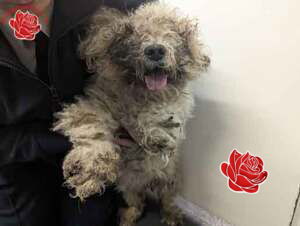Steph Neesam's Social Media Accounts
Know a Social Media Account Linked to Steph Neesam?
Want to add information? Log in to your account to contribute accounts and phone numbers.
NORTH SHIELDS DOG AND CAT BREEDER STEPH NEESAM FACES JUSTICE OVER CRUELTY CASES
In a case that has shocked the North Shields community, Steph Neesam, a backyard dog and cat breeder residing on Horsham Grove, was found guilty of neglecting her animals and causing them unnecessary suffering. Born on September 5, 1988, Neesam’s actions have brought to light serious concerns about animal welfare and the responsibilities of pet owners in the area.It was revealed that Neesam had left her bullmastiff, a dog named Viper, in a state of neglect for several months. The RSPCA investigation uncovered that Viper was suffering from a tumor on her left elbow, along with a skin condition and significant weight loss. Despite these evident health issues, Neesam admitted she had not sought any veterinary care for her dog, claiming she believed her treatment methods were comparable to those of a veterinarian. However, inspector Kirsty Keogh-Laws, who visited her property as part of the investigation, found that Viper’s skin was thickened and irritated, with hot patches on her back, tail, and paw, all signs of prolonged suffering.
Viper was also infested with fleas, which Neesam claimed she had attempted to treat using alternative products purchased online. The inspector took her to a veterinarian, who confirmed that the tumor had been present for at least a month, and the skin lesions indicated she had been enduring pain and discomfort for several months. Viper underwent surgery to remove the tumor and is now recovering at the RSPCA’s Felledge Animal Centre, where she is expected to find a loving forever home soon.
In sentencing, Neesam received an 18-month community order, which includes 180 hours of unpaid work, a fine of £395, and a five-year ban on keeping dogs, set to expire in April 2027. Despite this, her issues with animal neglect did not end there. In June 2024, she appeared before the courts again, this time for neglecting eleven Persian cats kept at her residence. These cats, ranging in age from 18 months to five years, were found living in deplorable conditions, suffering from various health problems including cat flu, fleas, matted coats, and poor dental health.
Police officers, responding to a report, discovered the cats in a rear room of her house, which was described by inspector Helen Bestwick as smelling strongly of ammonia and being unfurnished except for an armchair covered with dirty blankets. The cats’ environment was filthy, with soiled litter trays, a nearly empty water dish, and faeces on the floor. The cats were seized and taken for veterinary examination, which confirmed they were suffering from malnutrition, poor hygiene, and infectious diseases. One of the cats, a four-year-old male named Claws, was suffering from a permanent eye condition affecting his vision.
The vet’s report detailed that all eleven cats were in very poor condition, with most being underweight and covered in dirt and mats. They were also affected by cat flu, a disease that could have been prevented through vaccination. The overcrowded and unsanitary environment had facilitated the spread of illness among the animals. The vet emphasized that these conditions were entirely avoidable with proper care, vaccination, and suitable housing. Neesam admitted she had stopped breeding Persian cats the previous year but failed to provide any pedigree paperwork. Contradicting her claim, a Facebook post from May 2023 showed her advertising a young ginger cat named Harvey as her “new stud for next year,” which was later found in a poor state with labored breathing and matted fur.
Seven of the cats were signed over to the RSPCA, where they received treatment and care at the Felledge Animal Centre. All recovered well and were subsequently rehomed, giving them a fresh start after their ordeal. Neesam pleaded guilty to a charge under the Animal Welfare Act 2006 for neglecting her animals.
Inspector Bestwick commented on the case, stating, “The owner openly admitted she was aware of the cats’ problems but despite this she failed to provide a suitable environment, get them routinely vaccinated, or seek appropriate veterinary treatment for their numerous health issues as any responsible owner would do. It took many months of care and rehabilitation by our staff at Felledge to get these cats right again, but thankfully the seven that were signed over to us have found lovely new homes and have a much happier future ahead of them.”
In addition to the community orders, Neesam faces a five-year ban on keeping cats, which will expire in June 2029, underscoring the seriousness of her neglectful actions and the ongoing efforts to prevent such cases in the future.
















